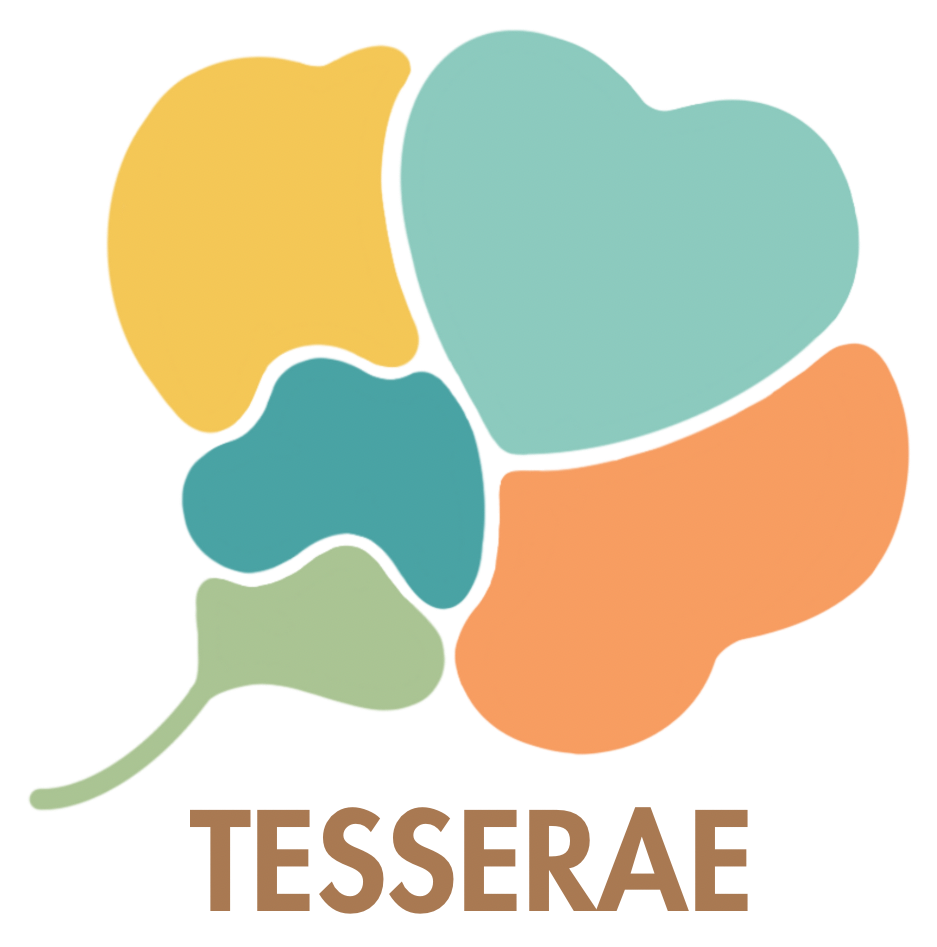Attention-Deficit Hyperactivity Disorder (ADHD) is a topic that can feel pretty overwhelming for parents, especially if you’ve noticed some things about your child that are making you wonder. Maybe they can’t sit still, or maybe they just seem to be in their own world most of the time.
It’s totally natural to feel a bit lost and wonder what the next steps are. You might have stumbled upon some online quizzes or articles, and while they might give you a few clues, getting a real answer is a whole different ballgame.
At Tesserae, we understand the uncertainty parents face when considering an ADHD test in Singapore.
Do You Need an ADHD Test for Your Child?
Many parents begin their search online, wondering about their child’s behaviour and whether it points to ADHD. Recognising the signs of ADHD can be tricky because some behaviours appear perfectly normal in children.
The key difference lies in the intensity, frequency, and impact these behaviours have on your child’s daily life. If your child’s symptoms are affecting their schoolwork, friendships, or family relationships, it may be time to consider professional assessment.
It’s worth noting that ADHD symptoms can vary quite a bit between children. Some kids might be the classic “hyperactive” type who can’t sit still, while others may be the “inattentive” type who seem to daydream constantly. Then there are those who show a combination of both patterns.

Common Signs of ADHD in Children
Inattention symptoms often show up as difficulty staying focused during tasks or play activities. Your child might seem to not listen when spoken to directly, struggle to follow through on instructions, or lose things necessary for school activities. They may also appear forgetful in daily activities and avoid tasks that require sustained mental effort.
Hyperactivity presents differently but is equally noticeable. You might see constant fidgeting with hands or feet, difficulty staying seated when expected to, or excessive running and climbing in inappropriate situations. Many children with ADHD talk excessively and seem to be “driven by a motor.”
Impulsivity can be perhaps the most challenging aspect for parents and teachers. This includes interrupting others, difficulty waiting their turn in games or conversations, and making decisions without considering consequences. These children often blurt out answers before questions are completed.
Beyond a Simple Quiz: The Limitations of Online ADHD Self-Quizzes
Online ADHD quizzes might seem like a quick solution, but they’re essentially self-screening tools rather than diagnostic instruments. While they can help you recognise patterns in your child’s behaviour, they cannot provide a formal medical diagnosis. These tests lack the comprehensive evaluation that healthcare professionals conduct.
After completing an online quiz, the most important step is seeking professional consultation. A qualified healthcare provider can conduct a proper evaluation that considers your child’s complete medical history, developmental milestones, and current functioning across different environments. Remember, ADHD diagnosis requires meeting specific criteria that only trained professionals can properly assess.
What's the difference between screening and diagnosis for ADHD?
ADHD screening and diagnosis are two distinct steps in a comprehensive assessment.
A screening involves using questionnaires and rating scales to identify individuals who might have ADHD. It’s a preliminary step that helps determine if a full diagnostic evaluation is necessary, and provides good guidance on the support required.
A diagnosis, on the other hand, is a clinical process conducted by a qualified healthcare professional, such as a psychiatrist or clinical psychologist. It involves a thorough evaluation that includes:
- Detailed interviews with the individual and their family to gather information about symptoms, developmental history, and functional impairment.
- Review of medical and school records to identify early signs and rule out other conditions.
- Psychological testing to assess for co-occurring conditions like anxiety or learning disabilities.
This comprehensive approach helps to confirm the presence of ADHD and rule out other potential causes of the symptoms.

Why get an ADHD diagnosis?
Obtaining a diagnosis is the first crucial step toward effective support and management. It provides clarity and understanding, helping you and your child make sense of their challenges. A formal diagnosis is essential for:
- Accessing appropriate treatment: This includes medication, therapy, and coaching tailored to ADHD.
- Securing accommodations: Schools and workplaces may provide necessary support, such as extended time on tests or a modified learning environment.
- Understanding and self-acceptance: A diagnosis can help reduce feelings of guilt and frustration, providing a framework for self-compassion and effective coping strategies.
- Informed decision-making: It allows families to make informed choices about educational paths and career planning.
Is ADHD a disability in Singapore?
In Singapore, ADHD is recognised as a neurodevelopmental condition that can impact learning, behaviour, and daily functioning. However, unlike conditions such as Autism Spectrum Disorder (ASD) or Global Developmental Delay (GDD), ADHD is not always automatically classified as a disability under government frameworks. Whether it is treated as a disability often depends on the severity of challenges and the context (education, employment, or social services).
The Comprehensive Assessment: What to Expect
There isn’t one definitive “ADHD test” that provides instant results. Instead, diagnosis relies on a holistic process that examines your child’s behaviour patterns across different settings and time periods. This comprehensive approach ensures that temporary behavioural issues aren’t mistaken for ADHD.
The assessment follows DSM-5 criteria, which outlines specific symptoms and requirements for ADHD diagnosis. These criteria help healthcare professionals determine whether your child’s symptoms meet the threshold for an ADHD diagnosis and which type of ADHD they might have.
Multi-source information plays a crucial role in this process. Healthcare providers will gather input from parents, teachers, and other caregivers who interact with your child regularly. This approach provides a complete picture of how your child functions in different environments, which is essential for accurate diagnosis.
Key Tools Used in a ADHD Diagnosis
Clinical interviews form the backbone of ADHD assessment. During these detailed conversations, healthcare professionals explore your child’s developmental history, current symptoms, and how these symptoms impact daily functioning. These interviews typically involve both parents and the child, depending on the child’s age.
Standardised rating scales provide structured ways to measure ADHD symptoms. Tools like the Conners’ Adult ADHD Rating Scale or Vanderbilt ADHD Diagnostic Rating Scale help quantify behaviours and compare them to age-appropriate norms. Both parents and teachers usually complete these questionnaires to provide different perspectives.
Objective tests such as the Continuous Performance Test (CPT) may also be used by some clinics. These technology-based assessments measure attention span and impulsivity in controlled conditions. However, these tests are supplementary tools rather than standalone diagnostic measures.
Public vs. Private ADHD Testing in Singapore: Costs and Waiting Times
One of the biggest concerns for parents is navigating the healthcare system whilst managing costs and waiting times. Understanding your options helps you choose the path that works best for your family’s situation.
The choice between public and private healthcare often comes down to balancing cost against convenience. Both routes can provide quality care, but the experience and timeline can differ quite a bit.

Public ADHD Tests
Starting with a GP or polyclinic consultation is the first step in the public healthcare route. Your family doctor will conduct an initial evaluation and, if necessary, provide a referral to specialist services at public hospitals like the Institute of Mental Health (IMH), National University Hospital (NUH), or KK Women’s and Children’s Hospital.
The main advantage of choosing public healthcare is the subsidised rates available to Singaporean citizens and permanent residents. This can make the assessment process much more affordable for families, especially when factoring in potential ongoing treatment costs.
However, longer waiting times are a notable drawback of the public route. Depending on the hospital and current demand, you might wait several weeks or even months for an appointment. This can be challenging when you’re eager to get answers and support for your child.
Private ADHD Tests
Private healthcare allows you to book appointments directly with specialist psychiatrists or psychologists without needing a GP referral first. This direct access can speed up the process considerably.
The primary benefit is shorter waiting times, with appointments often available within the same week of calling. This can provide peace of mind for parents who are concerned about their child’s immediate needs.
Private consultations do come with higher fees, with initial consultations typically costing between S$300–S$400 or more. However, many parents find the faster access and potentially more flexible scheduling worth the additional expense.
For parents in Singapore, a private ADHD diagnosis from a qualified professional is also recognised and accepted by schools for accessing Special Educational Needs (SEN) support. This can be a crucial step in formalising your child’s needs and facilitating access to important accommodations, such as extra time during examinations.
What Happens After a Diagnosis? Support and Treatment Options
Receiving an ADHD diagnosis is just the beginning of your journey. Understanding what comes next can help you feel more prepared and optimistic about your child’s future. The good news is that ADHD is highly treatable with the right combination of interventions.
Many parents worry that diagnosis automatically means medication, but that’s not necessarily the case. Treatment approaches vary based on your child’s specific needs, age, and symptom severity.

Multi-disciplinary Treatment Plans for ADHD
ADHD treatment extends far beyond medication alone. Many children benefit from a multi-disciplinary approach that combines different intervention strategies. This might include applied behaviour analysis (ABA) therapy, educational support, lifestyle changes, and sometimes medication.
ABA therapy and parent training programmes can be particularly effective. These approaches teach both children and parents practical strategies for managing ADHD symptoms in daily life. You’ll learn techniques for improving organisation, reducing distractions, and building better communication patterns.
School accommodations represent another crucial aspect of support. Your child’s diagnostic report can be used to apply for educational modifications such as extended time for tests, preferential seating, or frequent breaks. These accommodations help level the playing field for children with ADHD.
Ready to start the journey?
At Tesserae, our 2-hour development assessment (screening) costs $300.
While not a formal diagnosis, the expertise brought by our Clinical Director who is trained in developmental conditions allows for meaningful guidance at the screening stage.
Disclaimer: This article is for informational purposes only and is not intended as medical advice. Always consult with qualified healthcare professionals for proper diagnosis and treatment recommendations for your child.
Content
Book a free discovery session with us
